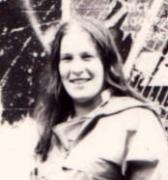|
|
||||||||||||||||||||||||
 |
Featured person
Recently added |
Robert Patterson (1743 - 1824): |
||||||||||||||||||||||
Robert Patterson was born on his parents' farm near Hillsborough, County Down. His family were respectable and young Robert went to school from an early age. though the family finances were not sufficient that he proceed to tertiary education. In 1759 he joined the militia where his proficiency earned him the offer of an Army commission, which declied, returing to farming.
In 1768 he went to Philadelphia, where after a spell as a schoolteacher in nearby Buckingham, a profession at which he excelled, he became Principal of Wilmington Academy in Delaware in 1774. He joined the revolutionary army and was promoted to the rank of brigadier-general.From 1779 to 1814 he was Professor of Mathematics at the University of Pennsylvania, later becoming Vice-Provost, and in 1805 he was appointed Director of the United States Mint. He was a Doctor of Laws and President of the American Philosophical Society, and he published prolifically: papers in Transactions of the American Philosophical Society; a frequent contributor of problems and solutions to mathematical journals. In 1806, he published a revised edition of James Ferguson's Lectures on Select Subjects in Mechanics, in 1808, a revised edition of John Webster's Elements of Natural Philosophy, and in 1809, a revised edition of Ferguson's Astronomy. In 1808, Patterson wrote a short treatise consisting of six lectures on natural phenomena for the nonscientist entitledNewton's System of Philosophy. His 1818 A Treatise of Practical Arithmetic contained extracts from his mathematical lecture notes at the University and he was a frequent contributor of problems and solutions to mathematical journals. In 1806, he published a revised edition of James Ferguson's Lectures on Select Subjects in Mechanics, in 1808, a revised edition of John Webster's Elements of Natural Philosophy, and in 1809, a revised edition of Ferguson's Astronomy. In 1808, Patterson wrote a short treatise consisting of six lectures on natural phenomena for the nonscientist entitledNewton's System of Philosophy. His 1818 A Treatise of Practical Arithmetic contained extracts from his mathematical lecture notes at the University.
He was married to Amy Hunter Ewing, daughter of Maskell Ewing of Greenwich, Cumberland County, New Jersey, with whom he had eight children. He died in Philadelphia.
| Born: | 30 May 1743 |
| Died: | 22 July 1824 |
| Kate Newmann |
| Acknowledgements: Additional research: Richard Froggatt, from the Archives of the University of Pennsylvania (www.archives.upenn.edu) |


Home | Our Policies | Plaques | Browse | Search | Sponsors | Links | Help | Contact
Privacy & Disclaimer | Cookie Policy | Site Map | Website Design By K-Point
© 2024 Ulster History Circle









